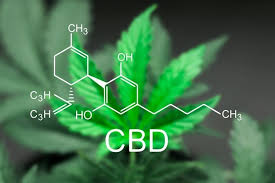As discussed in a prior blog post, the legal status of CBD can be very confusing to consumers, businesses, and lawmakers alike. As a substance that is derived from the cannabis plant, but is not cannabis’ main active ingredient, CBD currently occupies an unclear middle ground – particularly in California, where the state has imposed additional rules affecting how the various types of CBD may be legally used.
The legalization of hemp, though a step forward in the overall process of cannabis legalization, doesn’t do much to resolve the confusion surrounding CBD products. Even after hemp is legalized, CBD will be considered a drug and therefore subject to regulation by the FDA. Though the FDA has approved certain cannabis-derived CBD medications, CBD’s status as a drug makes it illegal to use as an ingredient in any kind of food or food additive.
Topicals, oils, and other non-edible forms of hemp-derived CBD, on the other hand, may not necessarily be banned once hemp is legalized. However, the FDA has yet to make a statement regarding this possibility – though they have sent unambiguous legal warnings to CBD businesses that make unsubstantiated or false claims about their products, indicating that they plan to regulate all CBD products to some degree, they’re less clear about the future legal status of hemp-derived CBD and non-edible hemp derivatives in general.
In California, the law on CBD edibles will remain paradoxical even after hemp is legalized. While CBD products with THC levels of 0.3% or more will be treated as cannabis edibles and therefore legal, CBD products with lower THC levels – or no THC at all – will be considered food products and therefore banned, regardless of whether they’re derived from cannabis or hemp. However, hemp-based non-edible CBD products are not currently regulated by any state agency, meaning their legal status remains unclear. For the sake of the state’s cannabis consumers and businesses, hopefully California will respond to the new Farm Bill by clarifying the legal status of these products.
For more information on the legal status of hemp and CBD, check our Guide to California Cannabis Laws or contact our cannabis attorneys at info@margolinlawrence.com.

















